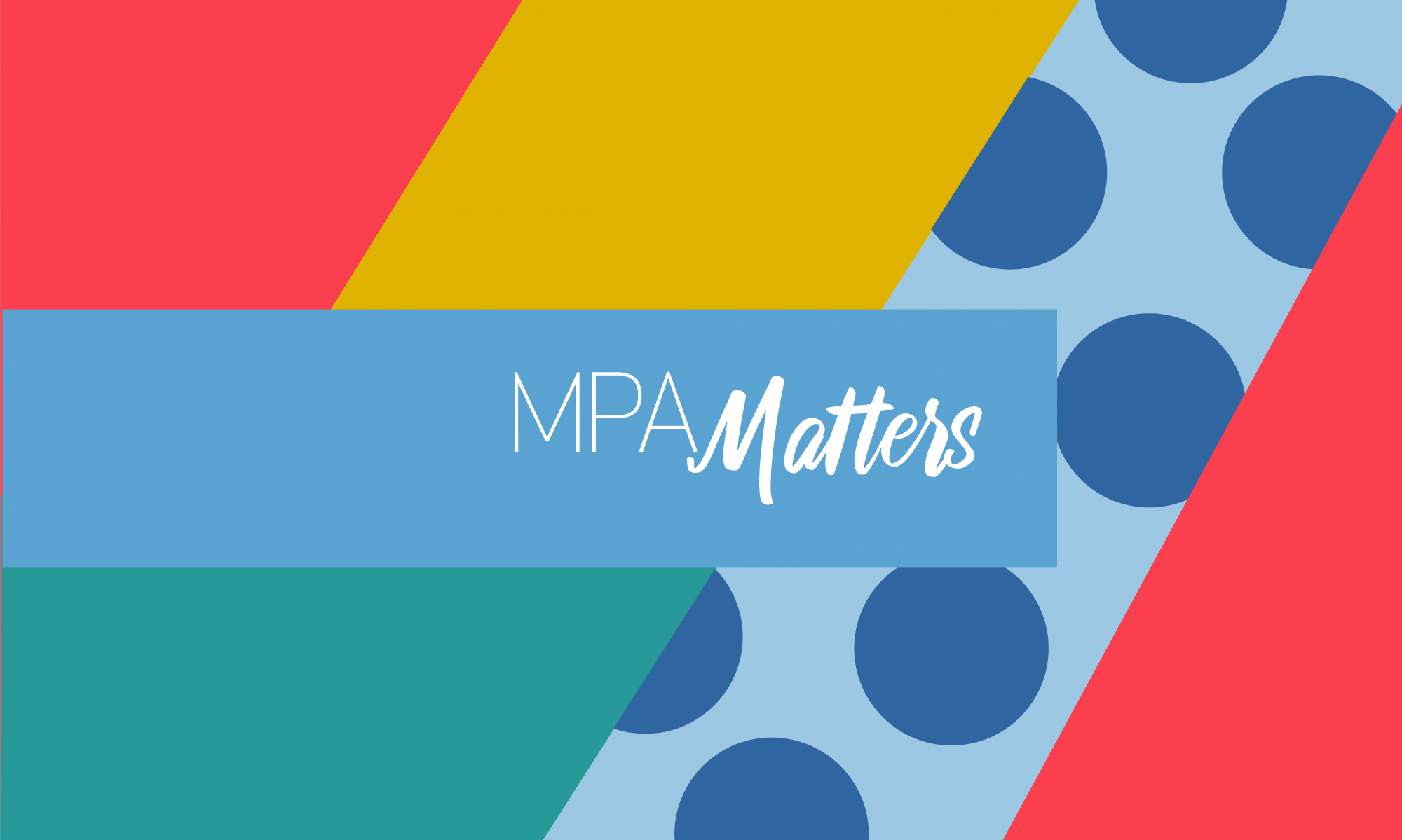This post was written by current student Elisabeth Butler.
——————————————————————————————–
These past 10 weeks have gone by incredibly fast. My PWE is already coming to a close, but I feel like I have just found my stride in terms of figuring out my role in the organization and my relationship with my co-workers during these last final moments. There is most likely an abundance of knowledge that I have yet to tap into, but, even in such a short span of time, I have learned a lot by working for this organization.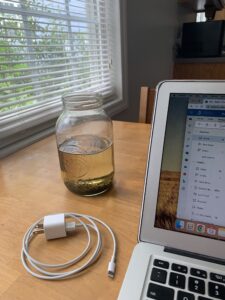
From Zoom meetings to facilitation trainings, RACE for Equity has been very generous in terms of making sure I had plenty of work to keep me busy. I enjoyed the responsibility of serving as a Project Assistant for several projects, and I liked how the deliverables assigned to me were tailored toward my interests within the organization. For example, during the interview process with RACE for Equity, I mentioned that I was interested in community engagement and development. Due to my interest in community work, RACE for Equity worked with me to develop two deliverables that was related to my interests. One deliverable involved creating a condensed version of the Community Engagement Continuum (CEC), a training material developed by RACE for Equity, and another deliverable included researching best practices for Communities of Practice (CoP).
In addition to those two deliverables, RACE for Equity team members brought me on to help with a variety of other projects, such as creating a plan to transition from Microsoft Teams to Google Workspace and collecting documentation for clients. I appreciate how RACE for Equity tailored the PWE experience to my interests, but also exposed me to a variety of other tasks, topics, and projects that were unfamiliar to me but equally stimulating.
As I reflect on my experience working with RACE for Equity, I would say, overall, I enjoyed the work, but, even more, I enjoyed the people. I would like to use this space to say thank you to all of the RACE for Equity team members who welcomed me into the organization and helped me learn and grow as an individual. It really is a different experience to work alongside co-workers who are passionate about making a difference in the world. RACE for Equity was looking at the big picture, but also cared about the little things as well. For example, RACE for Equity would have a check-in for each meeting. The check-in wasn’t just some quick formality. You could tell that the team was genuinely interested in learning what was going on in the lives of others, and they were honest in terms of how they were truly feeling at that moment. It is that kind of openness that I appreciated. The more I learned about other team members, the more I wanted to work alongside them to do good work. Change takes time, but RACE for Equity has inspired me to remain hopeful and to do my part, to show up each day and chip away at the systemic boundaries that has held us all captive for too long.
I’m Stepping Out of the Frey, but the Debate Rages On!
This post was written by current student Stephen Thompson.
Through this blog I’ve gotten to delve into the Raleigh housing market, tax-exempt status of churches, current legislation, and meet and interview many interesting and inspiring individuals. The throughline through all of those articles is the practice of public administration and civil service. I’m halfway through my MPA program and getting ready to undertake my Professional Work Experience practicum. Through the process of researching organizations with which to partner I’ve been blown away by the vast number of public service departments, councils, and organization that make this state function. Cynical readers might take issue with the efficiency and equity that this state runs (both valid points!), but the bottom line is that it does operate. If the machine works, we can make it better, but if it stops working—then we’ll have a problem on our hands! Thankfully, local and state government are “turning over” to use an automobile analogy.

The constitution has been referred to as a “living document” in that the rules of the game described in that document are still being followed today. The game of course, is the democratic republic that is our government. Not unlike a shared document in a cloud data system, the document is still being opened, viewed, and even edited today. With each election cycle another round of the game is added, and the board continues to evolve. However, there are few games (or governing documents) which allow for their rules to be re-written if enough of the players agree on the changes. As notoriously long as the game of monopoly is, if three of the four players decided to enact an income tax on all players that game would end pretty quickly. As trying a time as it was in 1909, we’re all still passing go, hoping to collect $200, and trying to stay out of jail.
The important thing is that when its “our turn” we still take part in the system. Midterm elections are this year and many states have already begun to hold primary elections to determine who is to be on the ballot. North Carolina’s primary is next week. I urge everyone to take the time to research candidates, cast votes, and take part in the “game.” Many people are concerned about how divisive politics are these days—and of course there is no excuse for when peaceful discourse gives way to violence, however the debate is what makes us Americans. The argument is what keep the blood pumping in the “living document” that is the constitution. Certainly, there are a lot of ideas floating around about how we should live, work, and thrive in our county. Not all of them are good, but all of them should be discussed, debated, and put to ultimate test; a vote.
Being an MPA student I feel a bit like Neo from the 1999 blockbuster film Matrix, as he begins to see the inner workings of the façade of everyday life. As I read articles, I find myself thinking about the competing values of public administration, contemplating how “wicked problems” are affecting local communities. Unlike Neo, my clairvoyance doesn’t show me that democracy is an illusion. The opposite in fact; seeing the inner workings of democratic dialogue convinces me even more that it is fact real. Moreover, the more we get involved, the “realer” it gets.
This week I hang up my bloggers hat (for now). I hope some readers have been inspired to think more deeply about our democracy and I hope some readers will continue to check back in with the MPA Matters blog, to see what topics are being discussed and questions posed at the School of Government. Most of all, I hope all readers (past and present) will take part in the “last great experiment for human happiness,” as George Washington once said. I don’t know if our Democratic Republic is the “last great experiment,” but it certainly is a great one.
The Durham City Council are rounding the bases, but will they make it home?
This post was written by current student, Stephen Thompson.
———————————————————————————————–
“Take me out to the Ball Game” was written by composer Albert Von Tilzer and lyricist Jack Norworth in 1908. With its descriptive lyrics and recognizable melody, it perfectly encapsulates the essence of the baseball experience. You’re probably already humming the song under your breath right now. What could be more American than baseball, apple pie, and democracy? Well, these days it’s the marble cake that is public and private partnership. 
The Durham Bulls are a Minor League Baseball team [AAA if that means anything to you], and poster children for their hometown. Although they are a private baseball club, thanks to the international success of the movie Bull Durham, this team is synonymous with Bull City and interwoven into the culture of the community. So interwoven in fact, that in 1995 the city of Durham built the team a brand-new stadium, helping to propel the team from up to its current classification of Triple-A. [Previously, it had been a Class-A Advanced team in the Carolina League, leading to my belief that there are far too many “A” designations in American Baseball. I digress.] So, the Durham Bulls are a privately owned baseball team whose home stadium, Durham Bulls Athletic Park (D-BAP) is owned by the city of Durham, NC. If that sounds odd to you, you probably aren’t familiar with American sports. Most of the nationally recognizable sports stadiums are owned by their respective local governments. While its not too hard to see the argument for this arrangement; the team represents the city, the city’s morale and cultural clout is tied to the team, the team needs somewhere to play, the city needs tax revenue to function—it gets more complicated in application. Here in lies the predicament in which the City of Durham finds itself.
The official organization of Major League Baseball dictates the specifications of an MLB stadium: size of the field, number of seats, etc. These stadium requirements must be met for any team to play in any of the MLB classified leagues. If the MLB changes their specifications of a qualifying field—as an independent organization is free to do, MLB teams must complete renovations to their stadiums in order to maintain their member status. But that would mean that the owners of the stadium would be over a barrel, obligated to pay for these renovations on behalf of the team. The owners being the taxpayers of the city. Now you’re seeing the marble in the cake.
You can read up on the specifics of the situation HERE but the 30,000 foot view is that the DBAP requires $10.2 million worth of renovations. The team is only able to chip in $1 million dollars, so Durham County taxpayers are on the hook for the other $9 million. If the stadium doesn’t get the upgrades, the Bulls either lose their MLB league position or have to move to another stadium (presumably in another city). Its complicated situation, with a fairly simple yes or now quest. Will they, or won’t they?
This trend of cities building stadiums to attract teams to play has present dating back to the early 20th century, but it really took off in the 90s. Ever since then, talking heads (and bloggers like me) have been debating the benefits and costs of cities building and maintaining these modern-day Colosseums. There are economic benefits and social draw backs, but as an MPA students I can’t help but wonder if this is what the constitutional framers had I mind when they hashed out the details of their new democracy. Citizens of a representative democracy free from the tyranny of the king, but still obliged to kowtow to private industry. Of course, I’m oversimplifying the situation, but the principal question for the city remains: Should taxpayers pick up the check for this private sports team?
At this point I image you’re thinking, “we that’s unfortunate, but what would the city of Durham do with DBAP if it didn’t have a baseball team to make it home?“ Funny you ask that; I was wondering the same thing. Turns out, the stadium is also home to two college baseball teams and hosts other events in the off season. So, it doesn’t have to be home to the Durham Bulls… Before the angry emails start to flood into my inbox, I’m not arguing that the city should balk on the renovations bill or that the Bulls franchise should move to another town [my wife would never forgive me], but I am wondering if the stadium should be owned by the city? This seem much more akin to a private venture, rather than a public service. Hats off to the city for getting the ball rolling, but now almost 30 years later, I question whether the city should be shelling out funds or issuing bonds to pay for renovations on a stadium to benefit a private organization.
Truth be told this is the type of messy situation which has given rise to the nonprofit boom we’re currently enjoying. Local governments are founding nonprofits to take these type of burdens off of the city financial books [and taxpayers]. By creating very specific nonprofits for downtown historic districts and similar ventures cities can support the cause, budget some monies toward the endeavors, but also seek outside funding. Of course, there’s more to it than just that, but local governments today are facing situations and realities never dreamed of by public administrators in 1908. The ever-shifting line between private and public sectors is getting finer and finer. Non-Governmental Agencies and Nonprofit Organizations are helping to fill that growing gray area that seems to find new questions every week. If you live in Durham, like I do, I encourage you to keep an eye on this situation. If you don’t live in Bull City, I still encourage you to keep abreast of what capital assets your local government owns. Those assets are maintained with your tax dollars. Some are good, some are bad, but you get a crack at all of them. That’s how it’s played in democracy and “in the old ballgame.”
What does Public Administration have to do with Ukraine?
This blog post was written by current MPA student Stephen Thompson.
———————————————————————————————-
Everyone I know is glued to their phones, getting updates about the situation in Ukraine. Personally, I check the news when I wake up, a couple times throughout the day, and before I go to sleep at night. Anything more than that would be paralyzing for me, and anything less than that would be anxiety inducing. It’s a delicate balance. Unfortunately, this is a strategy I’ve developed over the last few years of national and international crises. To some extent, having a personal strategy response to world-changing tragedies is a rite of passage for millennials. The School of Government actually hosts a microsite for NC Emergency Management professionals HERE. These days, it’s not hard to see how government interacts with our daily lives and abstract concepts of liberties, freedoms, and bureaucracy are part of the national lexicon, while billions of people across the United States look to public administrators to hear updates on mask mandates, international conflict, and everything in between. For better or for worse, this is the age of Public Administrators.
My article this week was going to be about Marriage Licenses; I’m getting married in a couple of weeks, but in light of current world affairs it felt trite, and frankly insensitive to ignore Russia’s attack on Ukraine to discuss the idiosyncrasies of Record of Deeds offices in different counties, and whether the issuance of marriage licenses was an intrusion into citizen’s lives or a reasonable regulation of federal tax policy. Strangely it doesn’t seem relevant. Americans have the most access to news—local, national, and international today than at any point in history. News is so ubiquitous that an entire subgenre of comedy has been dedicated to lampooning it [The Daily Show, Samantha B, Last Week Tonight, the list goes on…]. And while yes, the news has always been a source of material for comedians through impressions of politicians and hot takes of current events, this subgenre seems to subvert the punchline and just give updates on global events in a humorous, or even just palatable way. Some studies actually suggest that more and more young adults [that’s not us anymore, millennials] are becoming informed of news events through satire news programming. Honestly, I’m not sure I’m concerned about that.
Society, at least American society, has so well-defined civic service that there are several archetypes of just public servants in our collective consciousness. Whether it’s the sleazy politician, or the “make a difference in my community” council members or even the DMV Sloth from Zootopia (psss, that’s a public administrator), most of us can think of what a few different types of public servants look like. I think it’s good that these roles are so visible they’ve become fodder for humor. Likewise, I think it’s good that there are so many streams of information available—one of which has become a self-referential parody of itself, which now, in it of itself provides the news to millions of Americans. And now at this moment, during the largest land war in Europe since World War II, it seems more relevant than ever that they are so present in our society. I don’t mean to imply we’ve achieved the epitome of Lyndon Johnson’s Great Society, or even that we’ve figured out the best method to evaluate government programs [psss it’s not Randomized Control Trials on consumers of public services]. We’ve got a long way to go, but what I do mean to say is this:
Our government is only as good as we make it. The more we put into it through electoral participation, political discourse, and even career administrating, the more we get out of it. It’s inspiring to me that we as a nation are so plugged into current events far and near that we’re developing new ways to digest that information, and that we have so many visible examples of public servants [some more flattering than others] in our entertainment sphere. This doesn’t illustrate the difference between Russian and American politics, or even begin to unpack the damage done to public institutions by western European oligarchs [or American ones for that matter], but during times like this, it’s hard not to appreciate the progress we’ve made. Today the world stands with Ukraine, and American Public Administrators are the ones that deliver that message of support. –And that is why I was drawn to public administration, to help do the things we all know need to be done.
Christmas in July? Or July in December?
This post was written by current student Stephen Thompson.
———————————————————————————–
While hanging up Christmas lights this week, I had a thought. I was dressed in flip flops and a t-shirt, which made it easier to navigate the small forest of potted plants which dominate my fiancée and I’s first-floor apartment patio. One of our retired neighbors stopped by to talk with us while we strung lights in the outline of our storage closet door frame. My neighbor, Tom, talked about fishing, holiday travel plans, and the weather—really, he talked about the weather’s effects on the first two. “Climate change is real,” he concluded. That’s a statement I’ve heard frequently over the last couple of years. My thought: what responsibility do public servants have to be caretakers of citizens verses faithful bidders of the people’s will?
My neighbor Tom is an intelligent, wise, 81-year-old man. Like many people in this county, he’s a skeptical, seeing is believing kind of person. I don’t think that’s a bad thing. After a couple of trips around the block myself, I tend toward the “show me the money” side of the spectrum. The trouble with the type of proof which is in the pudding, however, is that you need to eat the pudding to see the truth. This brings me to a crucial question about representative democracy (the flavor of democracy the United States features). Is my representative’s responsibility to vote on legislation in congress as I would vote or as I should vote? Of course, the ideal manifestation of representative democracy is that those two are the same, however people and societies are far more complex than School House Rock ever led us to believe (“I’m just a bill [which could have dramatic effects on the lively hoods, personal safety, and liberties of millions of people across this county] on Capitol Hill).
One interpretation of our governing system might suggest that our representatives’ job is to be more educated and steeped in policy implications than the average American has time to be. We voted them into to office, to make decisions on our behalf, because we don’t have the time or resources to educate ourselves about those decisions. This is certainly the approach we take regarding the executive branch. The president and west wing staff make hundreds of decisions a day in our steads. We elect the president and grant them our nation’s proxy vote. On the other hand, isn’t congress supposed to check the executive branch’s power? Shouldn’t congress be the will of the people, in light of the assumption that the president is the “spirit” of the people? Many state and federal legislators take that view. It is the job of the politician to vote as each of their constituents would on any given issue. Some politicians, though, take this charge to mean they should educate their constituency. That is, their voters would choose this option, if they were privy to the information those representatives are. 
Bringing this back to my conversation with Tom, I wonder if the public servants of the 80s, 90s, 2000s, and 2010s let us, the people, down with their collective resistance to ecological policy over the decades. Ruling out super-packs, corporate donors, and other controversial applications of our representative democracy, if we assume that federal and state legislators have acted purely as we citizens have directed them, is that how it should work?
As I’m starting my second year of the MPA program, these are the types of questions I’m pondering, and exploring. How does one equably apply democracy? We know the letters of the laws which govern representation, but what is the spirit of those laws? My fiancée and I finished up our conversation with Tom and plugged in our lights. It is unseasonably warm for December, but the lights bring a festive spirit to the patio. There are some big questions with which public servants have to wrestle, but for now, let’s look forward to a brighter new year.
Tiny Homes for Raleigh, Giant Leap for Local Government
This post was written by current MPA student Stephen Thompson

If you’re like me, you have only a cursory understanding of “tiny houses,” –the somewhat recent trend in single family dwelling construction which features structures of about 600 square footage or less. This movement has been sweeping the first world by storm for the past decade and it’s hard to have not encountered the term at least once via conversation, real estate focused television programs, or obnoxious magazine covers in the supermarket. I’ve primarily seen it discussed on TLC-style reality TV shows which focus on younger couples looking to downsize their consumer-centric lifestyles and “get back the basics.” Noble as that motivation is, it has always felt very bourgeoisie to me. Just the notion of, [read in a posh Northeastern accent] “I’ve had so much access to stuff in my life that I’m just tired of buying things, so I’ve chosen to purposefully not buy as many things, because that will make me a better person.” In spite of my cultural objections, the city of Raleigh did something recently which made me see tiny houses in a different light.
This week the city council of Raleigh, NC unanimously approved the use of “tiny homes” within city limits, a building regulation not often approved by cities. As an MPA student, this piqued my interest. The city council is promoting tiny houses as an affordable option in the midst of the triangle-area housing crisis, which has many first-time home buyers priced out, and those who can afford the inflated prices having to put in offers on homes sight-unseen, due to sky rocketing demand. Even before the pandemic the tri-city area was listed as one of the most expensive markets in the county. Since the Covid scourge, it’s not uncommon to hear about houses selling before they even get to their first open house event. Reporting on the council’s decision, WRAL noted that a new construction tiny house with 300 square feet in the Raleigh area can sell for as little as $65,000—water and electric hook ups included. With this new zoning regulation going into effect in 90 days, this one council vote is poised to have a big impact on the economics of local homeownership. I have to say, this application of a modern trend sounds like something that can really make a difference in this area.
Land and home ownership is often the first way families can acquire and build generational wealth in this county and with so many young families being priced out by the pandemic-boom, this is beginning to become a serious threat to millennials and Gen Z’ers wealth acquisition. In regard to the long levity of a city or community, drops in homeownership—frequently the most valuable asset upon which residents pay property taxes, means less money for municipal budgets and public services. Meanwhile, less generational wealth results in more folks using the aforementioned underfunded public services. To subvert a common expression, a falling tide strands all ships. The city council are wise to take note of this problem down the road and take “tiny” steps [excuse the pun] to fix it early.
Public servants in the 21st century are faced with new and unique problems markedly different from those of previous generations. To address these new situations, we have to use new tools. I applaud the Raleigh city council’s out-of-the-box approach to this public issue, and I look forward to seeing if this lets a little air out of the ballooning housing market bubble. I’m going to be in the market for a house in a few years and who knows, maybe a tiny house could make a perfect starter tiny home.
MPA Student Spotlight: Valerie Sauer
This post was written by current MPA Student Stephen Thomson.
———————————————————————————————–

This is my 3rd semester at UNC and at this point I’ve started to notice something really interesting about the MPA program. There are so many diverse individuals, with different career trajectories, but somehow, we’re also so similar. To further understand this paradox, I decided to sit down with a couple of fellow MPA students to explore how our diversity ties us together. This week I got to talk with first year (first semester, even!), Valerie Sauer, currently the one and only MPA/MSW dual graduate degree student at UNC.
Valerie attended Appalachian State University before transferring to UNC and earning her undergraduate degree in Political Science, with a double minor in Public Policy and Hispanic Studies in 2016. Building on her internship and volunteer experience in social services, Valerie began working as a client services coordinator for the Family Justice Center in Alamance County, NC. In that role she worked directly with individuals seeking help for a wide range of situations from domestic abuse to human sex trafficking—Valerie handled the walk-in client. The first center of its kind in North Carolina, the Family Justice Center serves as a “one stop shop” for the myriad of government organizations individuals need to interact with to obtain help with their situation. After a year and a half there, Valerie was offered the Director of Education Programs position with the Compass Center in Chapel Hill, where she split her time between direct client work and community education. Valerie said she loved this work, but after several years of working with clients “interacting with systems that didn’t serve them” she felt moved to be part of systemic changes in the social services field—And with that, she turned to her alma mater, UNC.
Valerie’s mother and father both work in Public Administration, and from an early age Valerie was drawn to helping people in need, first in her home of Scotland County, NC and then as an undergraduate student interning with the Compass Center (the same one she returned to work at in 2018), and the Police Department. Over the years she interacted and helped a lot of individuals struggling with domestic abuse. She also saw a broken system which was not designed from a victim’s perspective and often became burdensome to individuals already down and out. Valerie’s direct client work at the Family Justice Center and the Compass Center afforded her valuable knowledge about the ins and outs of social justice in North Carolina, but as the Director of Education Program she gained a whole new perspective.
At the Compass Center Valerie went out and talked with community members, everyone from middle and high school students to police officers and medical students. She went to schools to talk to youth about healthy relationships and to meet with professional to tell them about the programs available at the Compass Center. This new role of indirect or pre-victim service helped her to see the system within which she worked and understand that while “individuals in these systems wanted to help… the system wasn’t designed to help [the victimized] individuals.” As she told me this paused. Mid-hand gesture and poignantly said, “and that’s why I’m here.”
I asked Valerie about the transition from full time employment to full time, on campus student and she acknowledged the shift in cultures. For example, Social Services professionals have been talking about equity and social justice for a while, but some of her public administration colleagues are new to the conversation. She added that one of the things she enjoys so much about the MPA program is the smaller class size, which has allowed those tough conversations to be more impactful. As a dual student Valerie will be on campus, full time for three years. This first year is as an MPA student, the second year will be a Social Work student. She said she’s glad her first year is in the MPA program, because her cohort has really helped with the emotional transition.
As our conversation drew to a close, I couldn’t help but ask Valerie about her mother, Lydian Altman, teaching professor for the School of Government and about her family’s history of public service. Valerie laughed and we joked about how her enrollment in the program might look like nepotism, but given Valerie’s impressive resume and professional drive, it would be hard to suggest she wasn’t in the program on her own merit and on her own path. Waxing retrospectively, she said she understands her parents much better know, and shared that she has already begun to see that the values she was taught growing up and those held dearly by public administrators.
Reflecting on our conversation, there something which Valerie said which I think cuts to the core of our conversation. “It’s the people who really make the difference for me,” she said while talking about the School of Government’s facility. And while, yes, we do have great faculty, I feel like that sentiment translates to what’s different about the comradery in this MPA program. I also feel like that sentiment sums up my personal motivations for enrolling in this program. Maybe it’s a common feeling among students studying Public Administration, but for me it’s the people who really make the difference.
Hispanic Heritage Month – Educating Myself on its Evolution
September 15th is the start of Hispanic Heritage Month, a 30-day period which runs from September to October. If you’re like me, you may have been vaguely aware of this cultural celebration, but relatively uneducated on its history and significance to both Latinx communities and the greater community of the United States. Let me take this moment to self-identify as a cis, white, straight, male (this is surprising to no one). As such, I decided to educate myself about this cultural celebration, and upon earning my PhD from Google I wanted to share a couple of the broader points.
First and foremost: why does this “month” span two half months? Well, that’s actually kind of a long story… 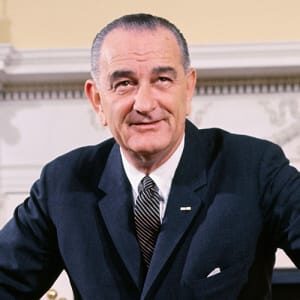
In 1968, President Lyndon B. Johnson (career highlights include: the Voting Rights Act of 1965, creating Medicare and Medicaid, and being played by Brian Cranston in an HBO movie) created Hispanic Heritage Week to honor the cultures and contributions of the Hispanic people. He selected the week which included September 15th because Costa Rica, El Salvador, Guatemala, Honduras, and Nicaragua all celebrate their independence from Spain on this date, in addition to Mexico and Chile’s independence days, Sept 16th and 18th respectively. This heritage week would go on to become a month two decades later when President Ronald Reagan signed it into law on Aug. 17th, 1988.
HOWEVER, let’s give credit where credit is due; the idea of making the heritage week into a heritage month was first proposed by California Representative Esteban Torres (we Stephens have to stick together). Unfortunately, Representative Torres’ initial bill failed to garner support, but the idea did stick around long enough to be added to another bill which was the one that Reagan signed into law.
So now we have National Hispanic Heritage Month, but some people call it Latinx Heritage Month. What’s the difference between Hispanic and Latino/Latina/Latinx?
The term Hispanic dates back to the 16th century and holds two common definitions. According to Merriam Webster: 1) of, relating to, or being a person of Latin American descent and especially of Cuban, Mexican, or Puerto Rican origin living in the U.S. 2) of or relating to the people, speech, or culture of Spain. Was that an “ah-ha!” moment for you? It was for me. In the later part of the 20th century Americans began using the term Hispanic to distinguish peoples from Central and South America from people living in the Central (or Mid-Western) and Southern United States, however the term “Hispanic” literally referred to people and cultures which trace their lineage back to Spain. Given the problematic and violent historical relationship between indigenous peoples in Central and South America and Spanish Conquistadors, it’s not hard to understand why folks proud of their heritage would reject this term in favor of the geographically oriented term “Latin.”
Short questions have long answers, huh? Well, there’s one more part…
Historically, the word “Latino” has been used to generally reference peoples living in and tracing their cultures and lineages back to Central and South America, however the ending “o” is the masculine suffix in Spanish, so this literally means “Latin men.” The feminine suffix in Spanish is “a,” hence “Latina” means “Latin women.” This is sort of like how some people use the generic pronoun “he” for a stranger, even though this is incorrect (at least) 51% of the time. So, the term “LatinX” was developed to include all Latin people.
In short, September 15th – October 15th is a great excuse to support a Latinx-owned business, seek out art from a Latinx individual, or to simply education yourself about the world spins for other people. Thank you for coming on this journey with me. I hope you learned something and learned to consider some things a little differently, I know I did.
Check out the UNC Carolina Latinx Center’s Event Calendar for some educational and FUN events happening around campus over the next month. 
Current student describes professional work experience in a legal clinic
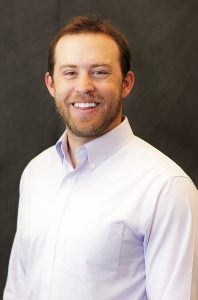 Written by Current MPA Student: John Williamson
Written by Current MPA Student: John Williamson
In 2018, I entered the UNC MPA program. To be honest, I had no idea what my future career path would look like at that time. What I did know is that I eventually wanted to enter the legal profession as an advocate for those who cannot advocate for themselves, so I also enrolled in law school at the University of Houston that fall. Three years later, I am now on the cusp of graduation in both programs, and will be entering the full-time workforce this summer as a commercial litigation attorney in Houston, Texas. Through the MPA’s Professional Work Experience (PWE) requirement, I believe that I have found my career calling.
Through the PWE program, I found an internship that has allowed me to intersect my two passions; law and public service. I am currently working as a student attorney in the Consumer Law Clinic at University of Houston. This Clinic has proved to be the perfect combination of my two different, but related, graduate degrees. The Consumer Law Clinic serves the Greater Houston area by providing free legal services to those who cannot afford competent representation. I am specifically involved in the actual representation of our Clinic clients as well as general oversight of administrative work related to improving our community outreach.
While my legal education has prepared me to provide adequate representation to our clients, my Public Administration education has provided me with the tools necessary to assist managing a public organization such as this Clinic. Specific tools that I have developed include, but are not limited to, project management, leadership, and communication skills. The skills that I learned in the UNC MPA program have prepared me to not only work in any public administrative role, but to also be an active leader in such a position.
I highly recommend this MPA program, and PWE component, as it will not only teach you key concepts regarding public administration, but the program will also assist you in finding a work opportunity tailored towards your personal interests and expertise. I can proudly say that UNC has helped me find and develop my passion. My overarching goal upon completing the program is to pursue a legal career in which I provide legal representation to those who cannot afford it.
A Year of a Pandemic
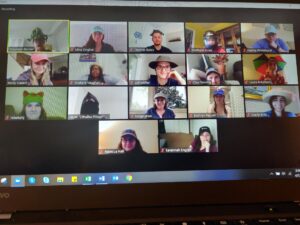 Hello Everyone!
Hello Everyone!
I hope you are all doing well! This time last year was a weird time for my cohort and many other students. We had just received an update from the University that our Spring Break was being extended by a week so faculty members could transition to teaching online due to the Covid-19 pandemic.
Looking back on the transition, I remember it was challenging for everyone in my cohort. We were confused by all the changes, as we switched to an online platform most of us had never used before. We were scared because of the pandemic and the constant sorrow surrounding the news updates as cases and deaths began to rise. A lot of us were lonely because we lived by ourselves near campus and our families weren’t always nearby. Our only interactions with others occurred through Zoom.
We are officially a year into online learning, and we have not shared a physical space with my cohort since last March. I miss the conversations we shared during lunch where we connected on more personal levels. I miss cracking jokes with my peers between— and maybe also during— classes as this always made our time more interesting. I also miss the ease of support that comes with interacting with your friends every day.
I know our experience isn’t exactly unique. Many other individuals experienced similar feelings during this uncertain time. One thing I am very proud of is how well my cohort adjusted. While our enthusiasm was affected by the pandemic, we were able to seek new ways to support each other. We held virtual happy-hours and movie and game nights to ensure we could all interact outside of a Zoom class.
One time, we all decided to surprise Dr. Maureen Berner during her class by wearing hats. Each of us entered the Zoom session wearing a hat that was either silly or brought us the most joy. It was our attempt to continue making class fun for everyone, including Dr. Berner. She even surprised us with a silly hat as well.
Additionally, we were all still seeking and confirming Professional Work Experiences during this time while maintaining the heavy academic lift associated with the first-year spring semester. Our motivation for school was tested. Yet, we persisted. Now, we have been online for a year and it has become part of our typical routine. We persevered through the challenges and learned from our experiences and we are better for it.
I feel very fortunate to have made such tremendous and supportive friends through this program. These individuals are strong, compassionate, intelligent, and hardworking. They face challenges with poise, creativity, tenacity. Each individual is going to be an excellent public service leader.
